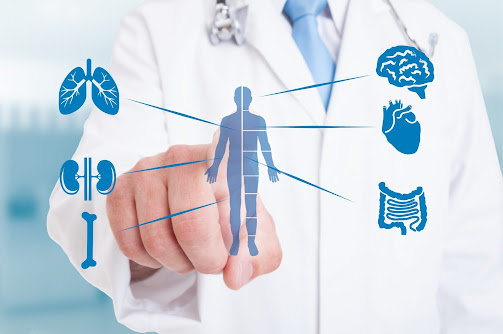How Hormonal Imbalance Leads To Sexual Dysfunction In Men
What is sexual dysfunction?
Sexual dysfunction is the underlying sexual health of a person that can arise during any phase of the sexual response cycle. It restricts a person from receiving pleasure and satisfaction from sexual union or activities.
The sexual response sequence usually comprises arousal, excitement, plateau, orgasm, and resolution. Desire and arousal fall under the excitement phase of the sexual response. It is essential to know ladies do not always have to go through these stages to have an intimate moment.
Several studies propose that sexual dysfunction is a common issue for both genders. But numerous people feel hesitant while talking about it. One must discuss their concerns with their partner and primary healthcare provider because several treatment alternatives are available on the market.
Different types of sexual dysfunction
Desire disorder, arousal disorder, orgasm disorder, pain disorder are major categories of sexual dysfunction. Let us know a little about these problems:
- Desire disorders:
Both men and women face this underlying sexual health problem at some stage in their lives. Fluctuating hormonal levels lead to desire disorder. It is a lack of sexual desire or interest in sex or low libido. When your body produces less than the required amount of hormones, you face challenges with your libido.
- Arousal disorders:
It is the inability to become physically aroused or excited during sexual activity. Both men and women face this sexual health problem, but it is more common in females. Men with low testosterone levels in their bodies find producing an erection hard.
- Orgasm disorders:
This stage of the sexual response cycle is very common with females. Many menopausal females reported having a delayed or missing orgasm or climax while sexually intimate. Some men also experience orgasm disorder when they fail to ejaculate through intercourse. Some of them ejaculate within seconds of their intimate moment and lose their erection while leaving their partners unsatisfied. It is known as premature ejaculation. It can be frustrating and disappointing for both men and women.
- Pain disorders
Experiencing pain during intercourse is a commonly reported issue by females. Most females do not get aroused and fail to secrete lubrication. It results in a painful sexual encounter. Some men with Peyronie's disease also feel pain when they produce an erection or have sexual intercourse.
- Sexual Dysfunction Is Common With!
- Inability to achieve or maintain an erection (erect or firm penis) suitable for intercourse. It is known as erectile dysfunction ED.
- Missing or prolonged ejaculation despite enough sexual stimulation. It is known as retarded ejaculation.
- Fail to control the timing of ejaculation. Or early ejaculation within a few seconds or less than a minute. It is known as premature ejaculation.
- Failure to attain orgasm. Some women find it hard to enjoy the pleasure of orgasm despite enough sexual arousal.
- Inadequate vaginal lubrication before and during intercourse. It leads a female to feel pain throughout the intimacy.
- Unable to relax the vaginal muscles enough to allow the penis to penetrate for intercourse.
- Lack of interest in or desire for sex. It is known as low libido. Hormonal levels play a huge part in it.
- Failure to get aroused.
- Painful or uncomfortable intercourse.
Causes Of Sexual Dysfunction
Several causes lead to sexual dysfunction in both men and women. These are categorized into two main groups. Let us have a look at them.
- Physical causes:
Various medical and physical circumstances of health can lead to issues with sexual function. These problems cover blood vessel disorder, neurological disorders, heart problems, hormonal imbalances, diabetes, vascular conditions. Some chronic diseases like kidney or liver failure, drug abuse, and alcoholism can also lead to sexual dysfunction. Side effects of antidepressants medications can also affect sexual function.
- Psychological causes:
These carry work-related stress and anxiety, feelings of guilt, fear of problematic sexual performance, concerns about body image, troublesome marital or relationship status, depression, and the effects of past sexual trauma.
What medications can cause sexual dysfunction?
Some prescription medications and even over-the-counter drugs can produce a negative impact on sexual functioning. Some medicines can induce an adversarial influence on libido (desire to have sex). Some of these medications can harm the capability to get aroused or achieve orgasm. The chance of sexual side effects increases when an individual is using various prescription remedies to regulate health.
Management and Treatment
How is sexual dysfunction treated?
Yes, you can get rid of your sexual health concerns. You can address such problems by treating the root cause of that is either physical or psychological problems. Other treatment approaches cover medications, sex therapy, hormone replacement therapy colorado springs, and various treatments that can help you get rid of your sexual concerns. Hormone therapy is one of the most suitable treatments options. It is deemed that by increasing the hormones to optimal levels, you can counter most sexual problems.
Can sexual dysfunction be corrected?
The success of treatment for sexual dysfunction majorly relies on the underlying cause of your sexual concern. Top Hormone Clinic in Colorado stated that the sexual dysfunction can be treated or reversed by fixing the accurate dosage. Remember that having a doctor's opinion is a must. Pursuing HRT on your own can lead you to undergo many troublesome health conditions.
Please Note:
Mild dysfunction in your sexual health due to stress, fear, or anxiety often can be successfully treated. Counseling, education, and improved communication between partners are enough to get rid of such conditions. It is crucial to stay motivated to improve your sexual health. You can also play an active role in your healthcare journey in collaboration with your medical provider. It will help come over your underlying sexual health condition effectively and immediately. So don't be shy or hesitant. Schedule a consultancy today!

Comments
Post a Comment